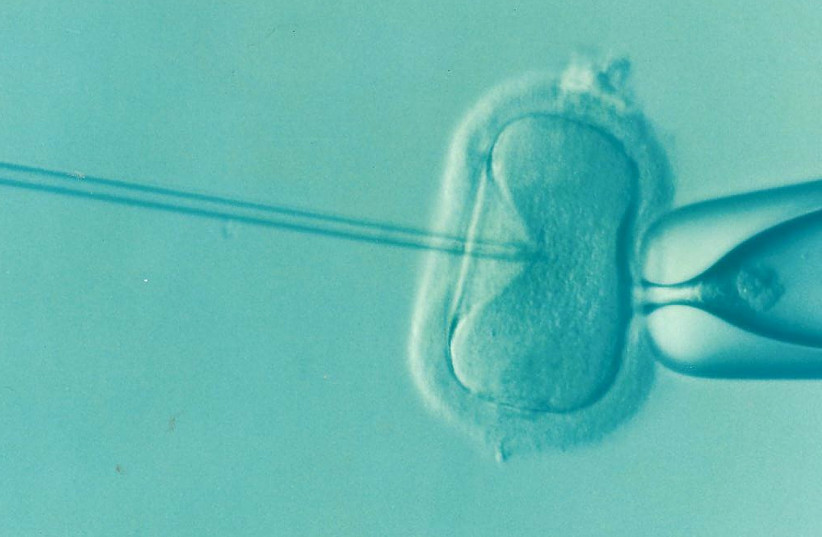After the Health Ministry announced last week that it would reduce the activity of the in-vitro fertilization (IVF) unit at the Assuta private hospital in Tel Aviv and issued a directive to not accept new patients, dozens of fertility physicians condemned the decision. They wrote to Health Minister Moshe Arbel and his director-general Moshe Bar Siman Tov, with copies to Attorney-General Gali Baharav-Miara, that “this arbitrary decision must be canceled, as thousands of women are waiting for treatments. They cannot start them, and there is a serious fear that they will lose the possibility of conceiving.”
In addition, the physicians argued, patients are required to transfer frozen embryos from Assuta hospitals to IVF units throughout the country, which could lead to embryo loss due to temperature changes in transit. In practice, the number of operations that can be performed per day was limited and the reception of new patients was stopped.
This move followed the limitation on the activity of the unit in Assuta Rishon Lezion, where the activity was reduced almost a year ago (September 2022). Patients were referred to other units in public hospitals, which are already in short supply and unable to treat all those who need them.
The protesting physicians said that the deficiencies in Rishon Lezion have been corrected in accordance with the ministry’s demands, but so far, the restrictions imposed on the unit have not been removed, so in practice, “it is almost impossible to maintain activity there.”
The ministry’s decision is “disastrous for the patients,” they continued. The public units cannot accept them due to overload, and patients are left without the ability to go to private hospitals, interfering with patients’ right to conceive and to raise children. “The demands of timing – in terms of the age/health condition/personal process of each patient... and the mental/emotional aspects – that are a significant part of the process of IVF treatment, put [patients] in a squeeze.”
What will happen if the decision isn't reversed?
Through attorney Gilad Yitzhak Bar-Tal, patients and doctors have made it clear that if the decision is not reversed, they will file a petition with the High Court of Justice. The attorney will argue that the arbitrary decision was made without consultation with professionals.
Some 40% of the IVF treatments in Israel have been carried out by doctors using Assuta facilities, so the decision deprives thousands of women of the right to conceive and give birth.
The ministry decision, they continued, “is not corrective – it is devastating, ruining the profession and the hopes of patients. The public system, which is already insufficient, has no capacity to absorb such a large number of patients.
Couples come to us and we tell them with sadness that we have no way to help them. We see and feel their pain, We implore the ministry to allow us to return to the work of creating life and to stop abusing our patients. Although strengthening the public units is an important and worthy goal, this cannot be done hastily and certainly not in a way that leaves thousands of patients [needs] unanswered.”

